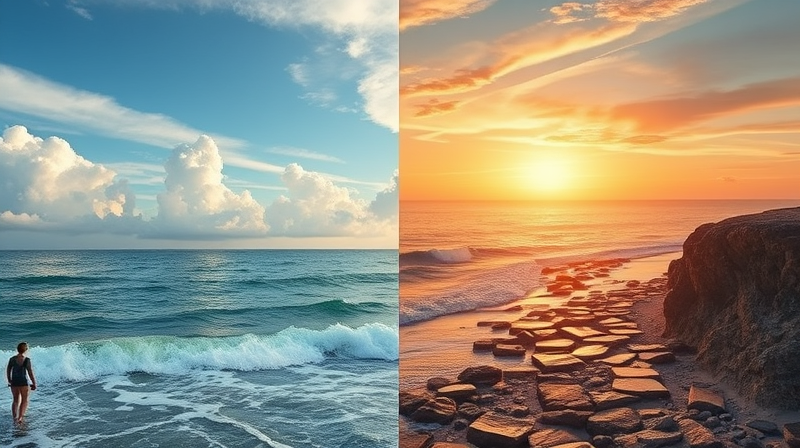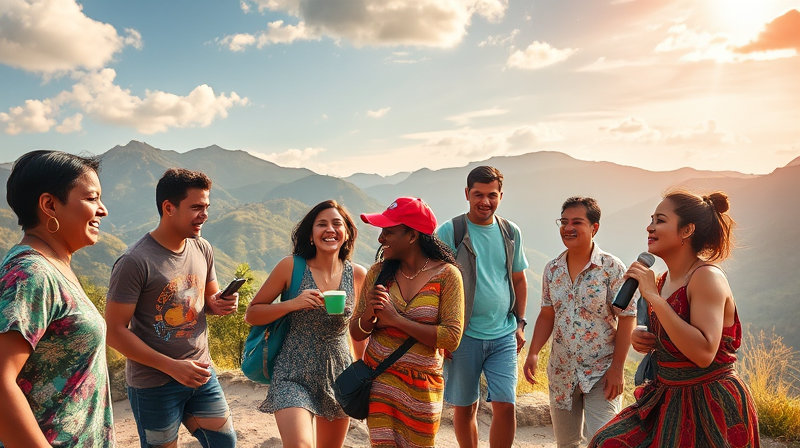Traveling provides endless opportunities for adventure and learning, yet it also has a significant impact on our environment. As global travelers, we hold the key to a healthier planet by making choices that lower our carbon footprint. Every small effort counts, and when combined with others, these actions lead to powerful, positive changes for our world.
In this inspiring guide, we explore innovative ideas that not only help maintain the beauty of our natural surroundings but also empower local communities. Whether you are planning a short getaway or a long expedition, these sustainable travel tips offer practical ways to explore while caring for the environment.
Smart Transportation Choices
Travel is an essential part of life, but choosing the right mode of transportation can drastically reduce your environmental impact. Opt for eco-friendly transit options by considering alternatives that produce fewer emissions.
- Embrace rail and bus travel: These options release significantly fewer pollutants compared to planes and cars. Traveling by train, for instance, can help reduce emissions by up to 86% compared to domestic flights.
- Fly with purpose: When air travel is necessary, book direct flights to minimize extra emissions created by takeoffs and landings. Additionally, participate in carbon offset programs associated with airlines that contribute to renewable energy or reforestation projects.
- Local mobility matters: Walking, biking, and using public transportation within your destination not only cuts down on carbon emissions but also allows you to experience local culture up close.
Each of these transportation strategies is effective in reducing your travel footprint and encourages a more mindful approach to how we move from place to place.
Eco-Friendly Accommodations and Packing Strategies
Your choice of lodging can significantly influence your carbon footprint while traveling. Consider selecting sustainable accommodations that prioritize energy efficiency and resource conservation.
- Eco-certified lodging: Seek out hotels and eco-lodges accredited by certifications such as Green Key, LEED, or EarthCheck. These establishments actively implement practices to reduce environmental impact.
- Local and sustainable: Supporting locally-owned accommodations not only reduces the carbon cost of transportation but also boosts the local economy.
- Renewable energy options: Find lodging that employs renewable energy sources like solar power or wind energy, ensuring your stay lasts as gently on the earth as possible.
When it comes to packing, less is more. Reducing suitcase weight decreases fuel consumption in all modes of transportation. Bringing reusable items such as water bottles, shopping bags, and eco-friendly toiletries allows you to make a lasting difference by minimizing waste.
Slow Travel and Deep Cultural Immersion
In today’s fast-paced world, embracing a slower pace of travel can offer significant benefits for both the environment and personal well-being. Slow and thoughtful travel empowers you to spend more time in fewer locations, drastically reducing the need for frequent transportation.
This approach not only lowers emissions but also permits you to establish meaningful connections with local cultures. By engaging deeply with the communities you visit, you can experience life as the locals do and gain a richer perspective on their way of storytelling, tradition, and history.
Supporting Local Communities and Natural Habitats
Your journey can be a force for positive change when you choose to support local businesses and conservation efforts. Dining at local restaurants, shopping for handmade souvenirs, and participating in community-led tours contribute to the economic vitality of a destination while lowering environmental harm.
- Buy local: Choose restaurants and markets that feature local produce and crafts, reducing the carbon footprint associated with imported goods.
- Community-driven tourism: Engage in tours and activities led by local guides who emphasize sustainable practices and conservation efforts.
- Protect natural environments: When exploring nature, follow marked trails, respect wildlife, and keep a minimal impact on the ecosystem. Visiting conservation areas, national parks, or reserves provides support that is essential for biodiversity preservation.
Every responsible action makes a difference. By choosing practices that honor nature and empower communities, you contribute to a cycle of sustainable change that safeguards the planet.
Carbon Offset and Continued Learning
Even with mindful choices, some impact is inevitable. That is why carbon offsetting has become a popular method to balance out emissions from travel. Programs focused on renewable energy, reforestation, and conservation projects provide a meaningful way to compensate for the unavoidable carbon you produce while traveling.
Consider using online carbon calculators to assess your travel footprint. By financing projects that replenish natural carbon sinks, you can ensure that your adventures benefit the planet as much as they satisfy your wanderlust.
Furthermore, staying educated and sharing your experiences are key to inspiring others. Knowledge empowers travelers to make informed decisions, while your personal stories can spark a ripple effect, encouraging friends, family, and communities to follow suit. Learning and teaching about sustainability can transform the travel landscape on a global scale.
As we look forward to a world where every journey is a step towards a more sustainable future, let us remember that our travel choices have the power to make lasting impacts. Embrace these ideas, plan your next adventure with care, and experience the joy of travel merged with environmental stewardship.
Every journey you take can serve as an inspiration to others and a testament to the fact that caring for our planet is integral to the spirit of exploration.








